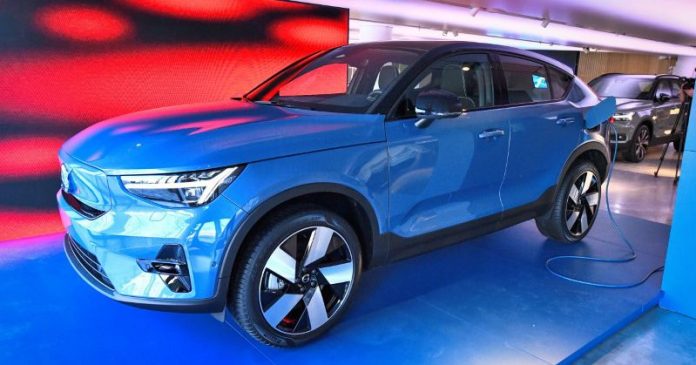June 16 (Reuters) – Among the big automakers, Volkswagen (VOWG_p.DE) and Volvo are doing enough to electrify their range of vehicles in Europe, and the EU must set tougher CO2 emission limits if it is to meet the goals of the Green Deal study an environmental group.
Sales of battery-electric vehicles and plug-in hybrids almost tripled in the past year, boosted by stricter emissions standards and government subsidies. Continue reading
This summer the European Union is expected to announce more ambitious CO2 targets; By 2030, the average CO2 emissions from new vehicles should be 50% below the level of 2021, compared to the previous target of 37.5%.
Volkswagen is targeting group-wide BEV sales of 55% in Europe by 2030, while Swedish automaker Volvo, which is owned by China’s Geely (GEELY.UL), says its range of products will be fully electric by then. Continue reading
Based on IHS Markit’s auto production projections, Volkswagen and Volvo have “aggressive and credible strategies” to switch from fossil fuel cars to electric vehicles, according to a study by the European campaign group Transport and Environment (T&E).
Others like Ford Motor Co (FN) have set ambitious goals “but lacks a robust plan to get there,” said T&E.
Ford plans a fully electric product range in Europe by 2030. read more read
T&E said BMW (BMWG.DE), Jaguar Land Rover (JLR), Daimler AG (DAIGn.DE) and Toyota (7203.T) rank the worst because they have low BEV sales, “no ambitious exit targets, no clear ones Industrial strategy and excessive dependence in the case of BMW, Daimler and Toyota on hybrids. “
JLR, which is owned by Tata Motors of India (TAMO.NS), says its luxury brand Jaguar will be all-electric by 2025, but has been less specific about electrifying its high-volume Land Rover brand. Continue reading
BMW and Daimler were reluctant to set tough deadlines for phasing out fossil fuel cars. Continue reading
T&E said even if automakers hit their targets, BEV sales in 2030 could be 10 percentage points below what it takes to meet the EU’s Green Deal, which aims to achieve net zero emissions by 2050.
Instead of cutting CO2 emissions by 50% by 2030, the EU could set more ambitious targets based on automakers’ existing production plans, T&E said – reducing CO2 emissions from new cars by up to 35% by 2025, around 50% by 2027 and up to 70% in 2030.
“The goals must be gradually tightened so that the automobile manufacturers not only commit to phasing out fossil fuels, but develop a strategy that gets them there in good time,” said Julia Poliscanova, T&E Senior Director for Vehicles and Electromobility.
Reporting by Nick Carey Editing by Bernadette Baum
Our Standards: The Thomson Reuters Trust Principles.

